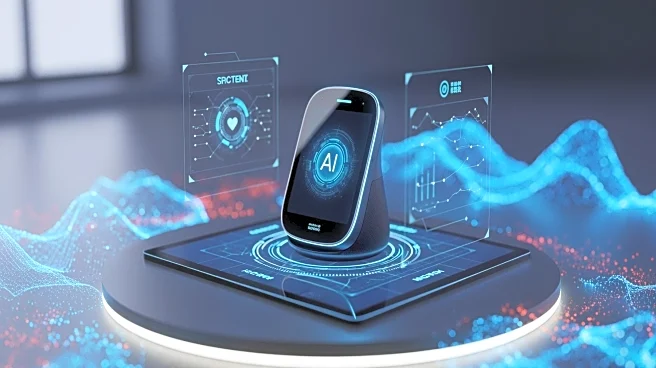What's Happening?
Artificial Intelligence (AI) is increasingly being integrated into human resources (HR) practices to optimize tasks and improve workplace efficiency. According to the Society of Human Resources Management
(SHRM), 40% of U.S. employers are already utilizing AI in recruitment processes. AI is being used to handle mundane tasks, allowing HR professionals to focus on more strategic activities. The integration of AI is not intended to replace human interaction but to enhance it, ensuring that HR remains a people-focused discipline. Key strategies include pairing AI with human oversight to avoid errors and bias, and using engineered prompts to guide AI tools effectively. HR leaders are encouraged to audit AI applications for bias and ensure vendors are using AI appropriately.
Why It's Important?
The adoption of AI in HR signifies a shift towards more efficient and data-driven decision-making processes. By automating routine tasks, HR professionals can dedicate more time to strategic initiatives that align with organizational culture and values. This transformation is crucial for maintaining competitive advantage in the rapidly evolving business landscape. The emphasis on human oversight ensures that AI complements rather than replaces human judgment, preserving the personal touch essential in HR. Organizations that successfully integrate AI into their HR practices can expect improved employee engagement, better talent acquisition, and enhanced overall productivity. However, vigilance is required to prevent potential biases and ensure ethical use of AI.
What's Next?
As AI continues to evolve, HR departments will likely expand its use beyond recruitment to areas such as performance management and employee engagement. Companies may need to invest in training HR professionals to effectively use AI tools and interpret their outputs. Additionally, there may be increased scrutiny on how AI is used, prompting organizations to establish clear guidelines and transparency in AI applications. Vendors providing AI solutions will be expected to demonstrate compliance with ethical standards and provide insights into their AI methodologies. The ongoing dialogue between HR leaders and AI developers will be crucial in shaping the future of AI in HR.
Beyond the Headlines
The integration of AI in HR raises important ethical considerations, particularly regarding privacy and data security. As AI systems handle sensitive employee information, organizations must ensure robust data protection measures are in place. Furthermore, the cultural impact of AI in the workplace cannot be overlooked. Transparency about AI usage can foster trust and acceptance among employees, while a lack of disclosure may lead to resistance or fear. The balance between automation and human interaction will be a key factor in determining the success of AI in HR.











